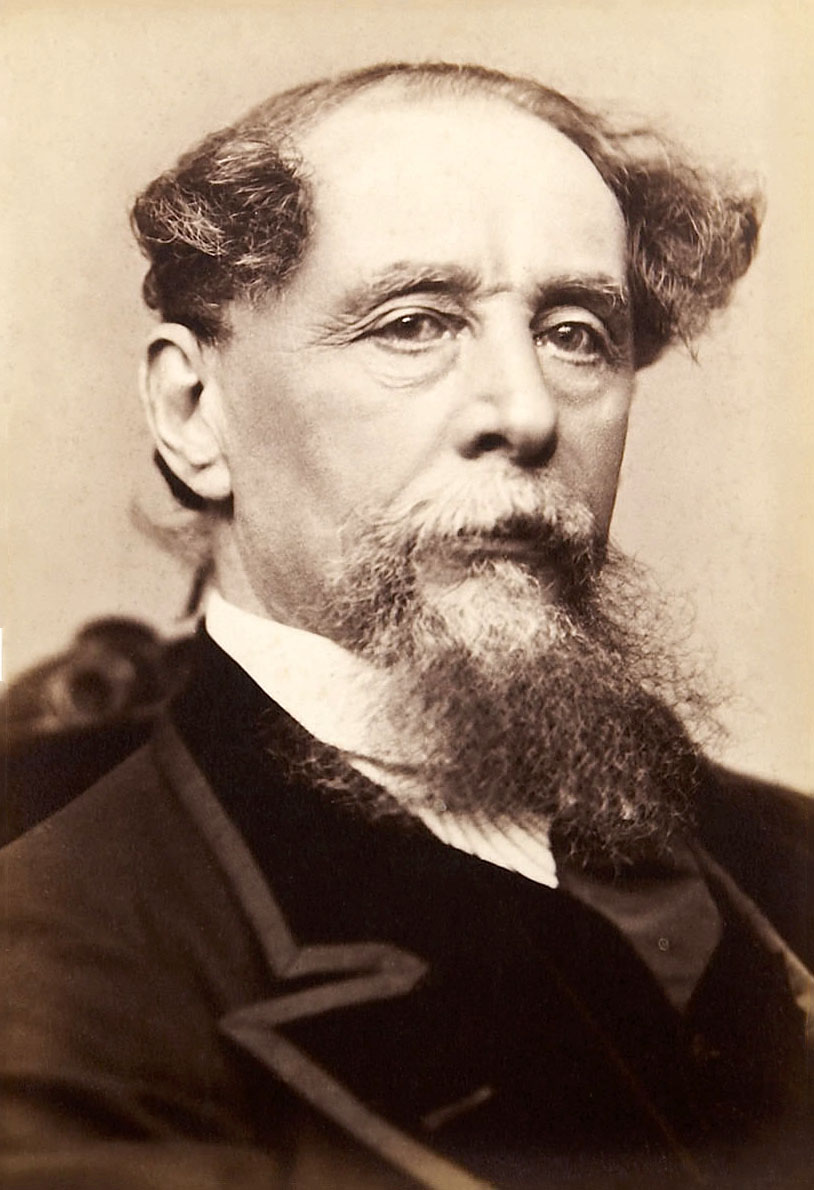Frases célebres de Charles Dickens
“Cada fracaso enseña al hombre algo que necesitaba aprender.”
Fuente: [Martín Cuadrado], Ana M.ª; Domingo J. [Gallego Gil], Catalina M. [Alonso García]. El educador social en acción: de la teoría a la praxis. Editorial Universitaria Ramon Areces, 2010. ISBN 9788480049832, p. 323. https://books.google.es/books?id=eWSnDAAAQBAJ&pg=PA323&dq=Cada+fracaso+ense%C3%B1a+al+hombre+algo+que+necesitaba+aprender.+Dickens&hl=es&sa=X&ved=0ahUKEwirn-b43O7gAhUxyIUKHUTzB0sQ6AEIODAD#v=onepage&q=Cada%20fracaso%20ense%C3%B1a%20al%20hombre%20algo%20que%20necesitaba%20aprender.%20Dickens&f=false
Frases de hombres de Charles Dickens
Charles Dickens Frases y Citas
“El hombre nunca sabe de lo que es capaz hasta que lo intenta.”
Fuente: [Amate Pou] (2017).
“El sol es débil cuando se eleva primero, y cobra fuerza y coraje a medida que avanza el día.”
Fuente: "Vieja tienda de curiosidades" - Charles Dickens
“Si no hubiera malas personas, no habría buenos abogados.”
Citas por obra, La tienda de antigüedades/The Old Curiosity Shop (1840-1841)
Original: «If there were no bad people, there would be no good lawyers».
Fuente: [Neely], Robert Donald (en inglés). The Lawyers of Dickens and Their Clerks, pp. 7, 26-7. The Lawbook Exchange, Ltd., 2001. ISBN 1584770910, 9781584770916. https://books.google.es/books?hl=es&id=P6VcYW39Pr4C&q=grovelling#v=snippet&q=grovelling&f=false En Google Books. Consultado el 2 de noviembre de 2019.
“Eran los mejores tiempos, eran los peores tiempos…”
Primera frase de la obra
Citas por obra, Historia de dos ciudades (1859)
Original: «It was the best of times, it was the worst of times...».
Variante: «No ha habido tiempos mejores ni peores;...».
Variante: «Érase el mejor de los tiempos y el más detestable de los tiempos; [...] la primavera de la [esperanza] y el invierno de la desesperación. Todo lo poseíamos y nada poseíamos».[Sin fuentes]
Fuente: [Anderson], Hephzibah (en inglés). «What are the best first lines in fiction?» http://www.bbc.com/culture/story/20191022-what-are-the-best-first-lines-in-fiction BBC Culture. Consultado el 30 de octubre de 2019.
Fuente: Historia de dos ciudades, 1859.
Fuente: [Dickens], Charles (trad. A de la [Pedraza]). Historia de dos ciudades. ALBA Editorial, 2016. ISBN 848428736X, 9788484287360. https://books.google.es/books?id=rmu-wk-lEgIC&printsec En Google Books. Consultado el 30 de octubre de 2019.
Fuente: [Dickens], Charles. Historia de dos ciudades. Penguin Random House Grupo Editorial España, 2010. ISBN 8420492124, 9788420492124. https://books.google.es/books?id=V5SF8y4lVpIC&pg En Google Books. Consultado el 30 de octubre de 2019.
Charles Dickens: Frases en inglés
“…vices are sometimes only virtues carried to excess!”
Fuente: Dombey and Son (1846-1848), Ch. 48
“Pip, dear old chap, life is made of ever so many partings welded together…”
Fuente: Great Expectations (1860-1861), Ch. 27
“It is said that the children of the very poor are not brought up, but dragged up.”
Fuente: Bleak House (1852-1853), Ch. 6
Our Parish, Ch. 5 : The Broker’s Man
Sketches by Boz (1836-1837)
“Money and goods are certainly the best of references.”
Bk. I, Ch. 4
Our Mutual Friend (1864-1865)
“I don't care whether I am a Minx or a Sphinx.”
Bk. II, Ch. 8
Our Mutual Friend (1864-1865)
“The bearings of this observation lays in the application on it.”
Fuente: Dombey and Son (1846-1848), Ch. 23
“My guiding star always is, Get hold of portable property.”
Fuente: Great Expectations (1860-1861), Ch. 24
Our Parish, Ch. 5 : The Broker’s Man
Sketches by Boz (1836-1837)
"Administrative Reform" (June 27, 1855) Theatre Royal, Drury Lane Speeches Literary and Social by Charles Dickens https://books.google.com/books?id=bT5WAAAAcAAJ (1870) pp. 133-134
“That's the state to live and die in!…R-r-rich!”
Bk. III, Ch. 5
Our Mutual Friend (1864-1865)
Letter to Thomas Beard (11 January 1835), in Madeline House, et al., The Letters of Charles Dickens (1965), p. 53
“In love of home, the love of country has its rise.”
Fuente: The Old Curiosity Shop (1841), Ch. 38
in a private letter to Baronness Burdett-Coutts on 4 October 1857
“Resisting the slow touch of a frozen finger tracing out my spine.”
The Signal-Man http://www.charles-dickens.org/three-ghost-stories-the-signal-man/ebook-page-04.asp (1866)
“There is a wisdom of the Head, and … there is a wisdom of the Heart.”
Bk. III, Ch. 1
Hard Times (1854)
